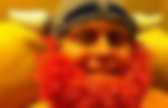

Teacher, Coach, Superstar
Knowledge. Knowledge acquisition involves complex cognitive processes: perception, communication, and reasoning; while knowledge is also said to be related to the capacity of acknowledgment in human beings.[2] Theories of knowledge[edit] In contrast to this approach, Wittgenstein observed, following Moore's paradox, that one can say "He believes it, but it isn't so," but not "He knows it, but it isn't so. " [5] He goes on to argue that these do not correspond to distinct mental states, but rather to distinct ways of talking about conviction. What is different here is not the mental state of the speaker, but the activity in which they are engaged. For example, on this account, to know that the kettle is boiling is not to be in a particular state of mind, but to perform a particular task with the statement that the kettle is boiling.
Communicating knowledge[edit] Symbolic representations can be used to indicate meaning and can be thought of as a dynamic process. Situated knowledge[edit] IB Diploma Theory of Knowledge course. Mr. Hoye's TOK Website. Philosophy. Theory of Knowledge. Theory of Knowledge » What is Knowledge?
People use the word “know” all the time, but what does it mean? Most of us feel that we have an intuitive grasp of the concept, but providing a more rigorous analysis of it is difficult. Types of Knowledge Philosophers typically divide knowledge into three types: personal knowledge, procedural knowledge, and propositional knowledge. The primary concern of epistemology is propositional knowledge, but contrasting this with other types of knowledge can help in clarifying precisely what it is that epistemologists are discussing. Theories of Knowledge The most popular account of knowledge is the tripartite theory. The closest thing to a rival to the tripartite theory is infallibilism, which suggests that knowledge requires absolute certainty, as opposed to belief or opinion about which there is more doubt.
Theory of Knowledge. International education - The International Baccalaureate offers high quality programmes of education to a worldwide community of schools. Theory_of_knowledge_international_baccalaureate.htm. The individual constantly struggles with the problems of knowing. Surrounding him and embedded in his consciousness are linguistic, cultural, emotional, and ethical complexities that color his perception and subtly influence his decisions. To this end, the student must first examine the filters of knowledge or Ways of Knowing: emotion, logic, language, and perception before he launches out into the larger considerations of Areas of Knowledge: math, natural science, social science, history, art, and ethics. "Truth is a pathless land" The Requirements for Theory of Knowledge include: (You will need to download an Adobe PDF reader to open the links below.) 1.
. (60%) Due at the end of February 2014 Click here for an evaluation check sheet If you would like to see ToK assessment exemplars click here 2. Knowing (40 %) Delivered throughout the month of March 2014 ToK is primarily concerned with problems of knowing Theory of Knowledge is designed to : A key element in the IBO's educational philosophy, ToK. Theory of Knowledge Student. TOK Books | TOKTalk.net. Below you see a collection of books that I’ve read (some of them completely, some of them partially) in preparation of my course. Each book has a somewhat different approach to the topic.
Some are easily readable, others require more concentration. Some have a more “theory based” approach, others try to engage the reader more. More books will be added (as I read them)… Several books presented here are introductory philosophy books. In my (humble, most personal) view, TOK should not be taught as a “history of philosophical ideas” course, but rather as a course which gets the students involved and thinking. Tags: Uncategorized. Pleasant Valley High School - Welcome to Ms. Burton's World.